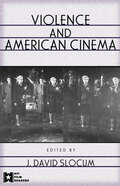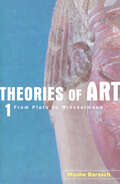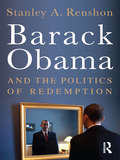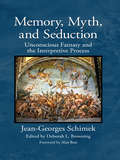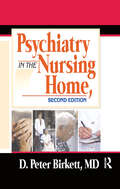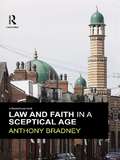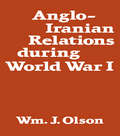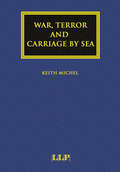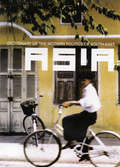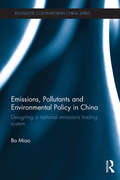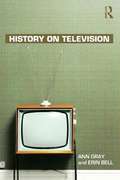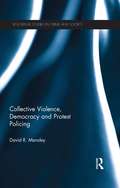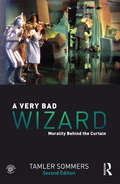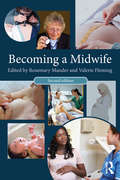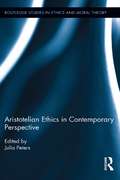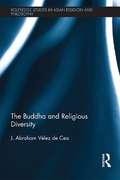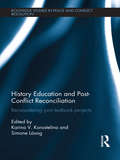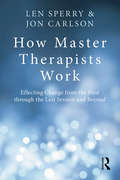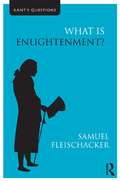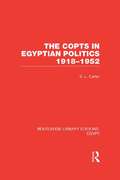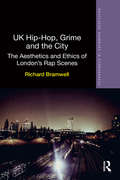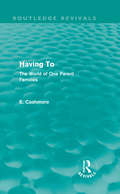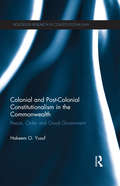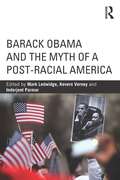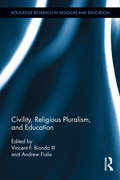Special Collections
Benetech’s Global Certified Accessible Titles
Description: Benetech’s GCA program is the first independent third-party EPUB certification to verify ebook accessibility. By creating content that is born accessible, publishers can meet the needs of all readers. Learn more: https://bornaccessible.benetech.org/
- Table View
- List View
Violence and American Cinema
by J. David SlocumFirst Published in 2001. Routledge is an imprint of Taylor & Francis, an informa company.
Theories of Art
by Moshe BaraschIn this volume, the third in his classic series of texts surveying the history of art theory, Moshe Barasch traces the hidden patterns and interlocking themes in the study of art, from Impressionism to Abstract Art. Barasch details the immense social changes in the creation, presentation, and reception of art which have set the history of art theory on a vertiginous new course: the decreased relevance of workshops and art schools; the replacement of the treatise by the critical review; and the interrelation of new modes of scientific inquiry with artistic theory and praxis. The consequent changes in the ways in which critics as well as artists conceptualized paintings and sculptures were radical, marked by an obsession with intense, immediate sensory experiences, psychological reflection on the effects of art, and a magnetic pull to the exotic and alien, making for the most exciting and fertile period in the history of art criticism.
Barack Obama and the Politics of Redemption
by Stanley A. RenshonEvery new president raises many questions in the public mind. Because Barack Obama was a relative newcomer to the national political scene, he raised more questions than most. Would he prove to be a pragmatic centrist or would his politics of hope ultimately flounder on the rocky shoals of America’s deep political divisions? What of his leadership style? How would the uncommonly calm character he demonstrated on the campaign trail shape Obama’s political style as commander-in-chief? Based on extensive biographical, psychological, and political research and analysis, noted political psychologist Stanley Renshon follows Obama’s presidency through the first two years. He digs into the question of who is the real Obama and assesses the advantages and limitations that he brings to the presidency. These questions cannot be answered without recourse to psychological analysis. And they cannot be answered without psychological knowledge of presidential leadership and the presidency itself. Renshon explains that Obama’s ambition has been fueled by a desire for redemption—his own, that of his parents, and ultimately for the country he now leads, which has enormous consequences for his choices as president of a politically divided America.
Memory, Myth, and Seduction
by Jean-Georges SchimekMemory, Myth, and Seduction reveals the development and evolution of Jean-Georges Schimek's thinking on unconscious fantasy and the interpretive process derived from a close reading of Freud as well as contemporary psychoanalysis. Contributing richly to North American psychoanalytic thought, Schimek challenges local views from the perspective of continental discourse. A practicing psychoanalyst, teacher, and consummate Freud scholar, Schimek sought to clarify Freud's concepts and theories and to disentangle complexities borne of inconsistencies in Freud's assumptions and expositions. This book is divided thematically into three sections. The first concerns fantasy and interpretation as they play out in the analytic situation, and the manner in which analyst and patient coconstruct meaning and reconstruct and recover memory. The second consists of two seminal papers which provide the sequence of steps in the five revisions in Freud's seduction theory. Schimek's careful scholarship lays out the data of Freud's writing, which allows one to draw one's own conclusions about the implications of the changes in the theory that he made. In the third, more theoretical section, he provides a foundation for understanding many of today's discussions about unconscious fantasy, dreaming, remembering, consciousness, affect, self-reflection, mentalization, and implicit relational knowing. He clarifies and illustrates Freud's original formulations (and their inherent problems) through a careful reading of sections of The Interpretation of Dreams, and a study of Freud's famous Signorelli parapraxis. Skillfully arranged and carefully edited by Deborah Browning and including a foreword by Alan Bass, this collection of Schimek's published and unpublished papers will be of interest to practicing psychoanalysts, psychoanalytically-oriented psychotherapists, and students of the history of ideas and philosophy who have a particular interest in fantasy, interpretation, and Freud.
Psychiatry in the Nursing Home
by D. Peter BirkettGet the vital clinical information you need with this comprehensive handbook!In the decade since the first edition of this book, dramatic changes have taken place in the field of geriatric psychiatry. Psychiatry in the Nursing Home, Second Edition, presents timely information on the newest trends in law, culture, and medications, while still offering essential advice on the fundamental concerns of caring for elderly patients with mental illnesses. The new edition of this essential handbook presents up-to-date information on psychiatric issues involving nursing home patients. Featuring helpful case histories and diagnostic criteria, Psychiatry in the Nursing Home, Second Edition, helps you effectively treat such difficult problems as noisy patients, sexual acting out, and incontinence. In addition, it offers help with such administrative concerns as financial issues, absent or warring families, and staffing problems. Psychiatry in the Nursing Home, Second Edition, presents incisive discussions of the changes in the field since the publication of the first edition, including: the effects of the new Prospective Payment System the use of newly released psychotropic medications the altered nomenclature of the DSM-IV the rise in assisted-living facilities the rapid development of the specialty of geriatric psychiatry With its comprehensive scope and practical advice, Psychiatry in the Nursing Home, Second Edition, is a must-have for nursing-home administrators and staff. Policymakers, mental health professionals, and geriatricians will be fascinated by the book&’s wider considerations of the problems of housing and caring for the mentally ill and its provocative suggestions for future policy.
Law and Faith in a Sceptical Age
by Anthony BradneyLaw and Faith in a Sceptical Age is an analysis of the legal position of religious believers in a dominantly secular society. Great Britain is a society based upon broadly liberal principles. It claims to recognise the needs of religious believers and to protect them from discrimination. But whilst its secular ideology pervades public discourse, the vestigial remains of a Christian, Protestant past are seen in things as varied as the structure of public holidays and the continued existence of established churches in both England and Scotland. Religious, Christian values also form the starting point for legal rules relating to matters such as marriage. Active religious communities constitute a very small minority of the population; however, those who belong to them often see their religion as being the most important element of their identity. Yet the world-view of these communities is frequently at odds with both the prevailing liberal, secular climate of Great Britain and its Christian, Anglican past. This necessarily entails a clash of ideologies that puts in question the secular majority's claim to want to protect religious minorities, the possibility of it being able to sufficiently understand the needs of those minorities and the desirability or practicality of any accommodation between the needs of the various religious communities and the secular mainstream of society. Law and Faith in a Sceptical Age addresses these issues by raising the question of whether a liberal, secular state can protect religion. Accommodation to different religious traditions forms part of the history of the legal systems of Britain. This book asks whether further accommodation can and should be made.
Anglo-Iranian Relations During World War I
by William J. OlsonA study of Anglo-Iranian relations during World War I. This book analyzes such diplomacy as an example of great power politics in regional affairs, examining Britain's concern to maintain stability in Iran and exclude foreign interests from the Persian Gulf and the approaches to India.
War, Terror and Carriage by Sea
by Keith MichelWar, Terror and Carriage by Sea provides a comprehensive legal analysis of the law and practice relating to the impact of war or war related risks, terrorism and piracy on international commercial shipping. It includes a detailed review of: • International Hull Clauses, the Institute War and Strikes Clauses, and by the P&I Associations and War Risk Associations in respect of war, war related, terrorist and associated risks • The impact of the threat oroccurrence of such risks on international carriage by sea including a review of the principal time and voyagecharter forms • A detailed review of the December 2002 amendments to the SOLAS 1974 Convention and the regulations and provisions contained in the ISPS Code
Dictionary of the Modern Politics of Southeast Asia
by Michael LeiferThis comprehensive Dictionary provides descriptive and analytical coverage of the turbulent political history and striking changes which have occurred both regionally and in key countries since the end of the Second World War. Substantially rewritten to take into account the dramatic political events and developments since 1995, the third edition of this acclaimed Dictionary will provide non-specialists and specialists alike with an essential resource on this constantly changing and volatile region.Including new entries, updated country profiles on Indonesia, Malaysia and Cambodia and a revised reading list, leading authority and commentator on this rapidly developing region Michael Leifer has brought this Dictionary fully up-to-date. Changes in government, the rise of new leaders and the knock-on effect on economy and society are covered including: the death of key figures such as Pol Pot and the rise of a new generation of leaders, dramatic changes of government in Indonesia, Thailand and the Philippines and elections in Malaysia.Countries covered include Brunei, Burma (Myanmar),Cambodia (Kampuchea), Indonesia, Laos, Malaysia, the Philippines, Singapore, Thailand and Vietnam.Key features include:* Individual entries provide detailed information and authoritative commentary on the central figures, political parties and organizations, political systems and structures, major events and key documents.* For each state covered, an extended narrative analyses its recent history and political and social development.* Extensive cross-referencing and a subject index lead the reader to the vital material.* Subject bibliographies refer researchers to source and secondary matter.
Emissions, Pollutants and Environmental Policy in China
by Bo MiaoAs the world's biggest polluter, the environmental challenges that China faces in controlling its airborne emissions are crucial, not only to its own population in terms of tackling the severe domestic air pollution, but also to the planet as it faces calls from the international community to accept its responsibilities in cutting greenhouse gases. Deteriorating air quality clearly shows that China’s current environmental regime is unsuited to either tackle the rampant domestic air pollution or contribute fairly to international climate action. As such, this book explores the feasibility of applying a national emissions trading system to control multiple air pollutants in China. It begins with an outline of the existing emissions management system and goes onto explore whether a national emissions trading system is a viable choice to combat China’s conventional air pollutants. To this end, there is an in-depth analysis of the two pilot sulphur dioxide emissions trading programs in Taiyuan and Jiangsu, as well as an examination of emissions trading schemes in the US and EU. Finally, the book discusses the key design elements of a multi-pollutant cap-and-trade scheme that addresses both conventional air pollutants and greenhouse gasses. This book will be of great interest to students and scholars interested in the fields of environmental studies, Chinese politics and environmental law. It will also be invaluable to policy makers in the field.
History on Television
by Ann Gray and Erin BellIn recent years non-fiction history programmes have flourished on television. This interdisciplinary study of history programming identifies and examines different genres employed by producers and tracks their commissioning, production, marketing and distribution histories. With comparative references to other European nations and North America, the authors focus on British history programming over the last two decades and analyse the relationship between the academy and media professionals. They outline and discuss often-competing discourses about how to ‘do’ history and the underlying assumptions about who watches history programmes. History on Television considers recent changes in the media landscape, which have affected to a great degree how history in general, and whose history in particular, appears onscreen. Through a number of case studies, using material from interviews by the authors with academic and media professionals, the role of the ‘professional’ historian and that of media professionals – commissioning editors and producer/directors - as mediators of historical material and interpretations is analysed, and the ways in which the ‘logics of television’ shape historical output are outlined and discussed. Building on their analysis, Ann Gray and Erin Bell ask if history on television fulfils its potential to be a form of public history through offering, as it does, a range of interpretations of the past to and originating from or including those not based in the academy. Through consideration of the representation, or absence, of the diversity of British identity – gender, ethnicity and race, social status and regional identities – the authors substantially extend the scope of existing scholarship into history on television History on Television will be essential reading for all those interested in the complex processes involved in the representation of history on television.
Collective Violence, Democracy and Protest Policing
by David R MansleyIn this book David Mansley argues that the frequency with which violence intrudes on to the streets is related to both how society is governed and how it is policed. With the help of an innovative methodology, he quantifies and tests three variables – collective violence, democracy and protest policing – using protests in Great Britain in 1999–2011, for his sampling frame. The result is the design of new tools of measurement and a harvest of new data, including previously unpublished details of banning orders and riot damages, that enable us to reflect, with the benefit of broad sociological perspective, on the causes of contemporary violent events. Mansley’s explanation of the trends he identifies draws from the work of the best thinkers on violence – especially Charles Tilly, Thomas Hobbes and Norbert Elias. He shows how the style of protest policing and the depth of democracy, both of which function under the direction of the political economy, are crucial to the state’s credentials as the monopoly supplier of legitimate violence. His discussion touches on such current topics as the institution of police commissioners, the privatisation of policing duties, and the decline in homicide. This cultured study, which includes an engaging review of the existing scholarship on violence, is essential material for undergraduate and postgraduate students reading criminology, sociology or political theory.
A Very Bad Wizard
by Tamler SommersIn the first edition of A Very Bad Wizard: Morality Behind the Curtain – Nine Conversations, philosopher Tamler Sommers talked with an interdisciplinary group of the world’s leading researchers—from the fields of social psychology, moral philosophy, cognitive science, and primatology—all working on the same issue: the origins and workings of morality. Together, these nine interviews pulled back some of the curtain, not only on our moral lives but—through Sommers’ probing, entertaining, and well informed questions—on the way morality traditionally has been studied. This Second Edition increases the subject matter, adding eight additional interviews and offering features that will make A Very Bad Wizard more useful in undergraduate classrooms. These features include structuring all chapters around sections and themes familiar in a course in ethics or moral psychology; providing follow-up podcasts for some of the interviews, which will delve into certain issues from the conversations in a more informal manner; including an expanded and annotated reading list with relevant primary sources at the end of each interview; presenting instructor and student resources online in a companion website. The resulting new publication promises to synthesize and make accessible the latest interdisciplinary research to offer a brand new way to teach philosophical ethics and moral psychology.
Becoming a Midwife
by Rosemary Mander and Valerie FlemingWhat is the reality of being a midwife in the twenty-first century? What is it like to help and support women throughout pregnancy and childbirth and into motherhood? What roles can midwives play in society? This new edition of the popular text, Becoming a Midwife, explores what it is to be a midwife, looking at the factors that make midwifery such a special profession, as well as some of the challenges. The fully updated chapters cover a variety of settings and several different stages in a woman’s pregnancy, including stories from midwives working in hospitals and in the community, as managers, supervisors and educators, and as men, women, mothers and birth activists. All chapters are narrated by contributors who introduce their own theme, recount a vignette that throws light on their understandings of midwifery and reasons for becoming (or not becoming) a midwife and any subsequent career moves. Backed up by commentaries and drawing together these insights, the editors show what it means to be a midwife today. Suitable for those contemplating a career in midwifery and providing an opportunity for reflection for more experienced midwives, this thought-provoking book is an invaluable contribution to midwifery.
Aristotelian Ethics in Contemporary Perspective
by Julia PetersBy bringing together influential critics of neo-Aristotelian virtue ethics and some of the strongest defenders of an Aristotelian approach, this collection provides a fresh assessment of the strengths and weaknesses of Aristotelian virtue ethics and its contemporary interpretations. Contributors critically discuss and re-assess the neo-Aristotelian paradigm which has been predominant in the philosophical discourse on virtue for the past 30 years.
The Buddha and Religious Diversity
by J. Abraham Velez de CeaProviding a rigorous analysis of Buddhist ways of understanding religious diversity, this book develops a new foundation for cross-cultural understanding of religious diversity in our time. Examining the complexity and uniqueness of Buddha’s approach to religious pluralism using four main categories – namely exclusivism, inclusivism, pluralistic-inclusivism and pluralism – the book proposes a cross-cultural and interreligious interpretation of each category, thus avoiding the accusation of intellectual colonialism. The key argument is that, unlike the Buddha, most Buddhist traditions today, including Theravāda Buddhism and even the Dalai Lama, consider liberation and the highest stages of spiritual development exclusive to Buddhism. The book suggests that the Buddha rejects many doctrines and practices found in other traditions, and that, for him, there are nonnegotiable ethical and doctrinal standards that correspond to the Dharma. This argument is controversial and likely to ignite a debate among Buddhists from different traditions, especially between conservative and progressive Buddhists. The book fruitfully contributes to the literature on inter-religious dialogue, and is of use to students and scholars of Asian Studies, World Religion and Eastern Philosophy.
History Education and Post-Conflict Reconciliation
by Karina V. Korostelina and Simone LässigThis book analyses the role of history education in conflict and post-conflict societies, describing common history textbook projects in Europe, the Balkans, the Caucasus, the Far East and the Middle East. Ever since the emergence of the modern school system and the implementation of compulsory education, textbooks have been seen as privileged media. The knowledge they convey is relatively persistent and moreover highly selective: every textbook author must choose and omit, condense, structure, reduce, and generalize information. Within this context, history textbooks are often at the centre of interest. There are unquestionably significant differences regarding homogeneity or plurality of interpretations when concepts of history education are compared internationally. This volume conducts a comparative analysis of common history projects in different countries and provides conceptual frameworks and methodological tools for enhancing the roles of these projects in the processes of conflict prevention and resolution. This book is timely, as issues of history education in conflict and post-conflict societies are becoming more popular with the increased realisation that unresolved disagreements about historical narratives can, and often do, lead to renewed conflict or even violence. This book will be of interest to students of peace studies and conflict resolution, political science, history, sociology, anthropology, social psychology, and international relations in general.
How Master Therapists Work
by Jon Carlson and Len SperryHow Master Therapists Work engages the reader in experiencing what really happens in therapy with master therapists: who they are, what they do, and how they bring about significant change in clients. It examines one master therapist’s actual six-session therapy (also available on DVD) that transformed a client’s life, resulting in changes that have been sustained for more than seven years. Session transcriptions directly involve the reader in every aspect of the therapeutic change process. This is followed by the commentary of a master therapist-psychotherapy researcher who explains how these changes were effected from a psychotherapy research perspective. Next, the master therapist who effected these changes explains what he was thinking and why he did what he did at key points in the therapy process. Then, the client shares her thoughts on this life changing therapeutic experience. This is a must have, one-of-a-kind book that will greatly enhance the therapeutic understanding and skills of both practicing therapists and therapists-in-training.
What is Enlightenment?
by Samuel Fleischacker"Have the courage to use your own understanding! - that is the motto of enlightenment." - Immanuel Kant The Enlightenment is one of the most important and contested periods in the history of philosophy. The problems it addressed, such as the proper extent of individual freedom and the challenging of tradition, resonate as much today as when they were first debated. Of all philosophers, it is arguably Kant who took such questions most seriously, addressing them above all in his celebrated short essay, An Answer to the Question: What is Enlightenment? In this engaging and lucid book, Samuel Fleischacker first explains and assesses Kant’s philosophy of Enlightenment. He then considers critics of Kant’s views - from Burke and Hegel to Horkheimer and Adorno - and figures he regards as having extended Kant’s notion of enlightenment, such as Feuerbach, Marx, Habermas, Foucault, and Rawls. Throughout, he demonstrates how Kant holds two distinct theories of enlightenment. On the one hand, Kant proposes a ‘minimal’ view, where to be enlightened is simply to engage in critical public discussion, allowing diversity of opinion to flourish. On the other, he argues that Kant elsewhere calls for a ‘maximal’ view of enlightenment, where, for example, an enlightened person cannot believe in a traditional religion. With great skill Fleischacker shows how these two views are taken in a multitude of directions by both critics and advocates of Kant’s philosophy. Arguing that Kant’s minimal enlightenment is a precondition for a healthy proliferation of cultures, religious faiths and political movements, What is Enlightenment? is a fascinating introduction to a key aspect of Kant’s thought and a compelling analysis of philosophical thinking about the Enlightenment. Including helpful chapter summaries and guides to further reading, it is ideal for anyone studying Kant or the philosophy of the Enlightenment, as well as those in related disciplines such as politics, history and religious studies.
The Copts in Egyptian Politics
by B.L. CarterThis book explores the political relationship between the Muslim majority and Coptic minority in Egypt between 1918 and 1952. Many Egyptians hoped to see the collaboration of the 1919 revolution spur the creation of both a new collective Egyptian identity and a state without religious bias. Traditional ways of governing, however, were not so easily cast aside. Some Egyptians held tenaciously to the traditional arrangements which had both guaranteed Muslim primacy and served relatively well to protect the Copts and afford them some autonomy. Differences within the Coptic community over the wisdom of trusting the genuineness and durability of Muslim support for equality were accentuated by a protracted struggle between reforming laymen and conservative clergy for control of the community. The unwillingness of all parties to compromise hampered the ability of the community both to determine and to defend its interests. The Copts met with modest success in their attempt to become full Egyptian citizens. Their influence in the Wafd, the pre-eminent political party, was very strong prior to and in the early years of the constitutional monarchy, and their formal representation was generally adequate and, in some parliaments, better than adequate. However, this very success produced a backlash which caused many Copts to believe, by the 1940s, that the experiment had failed: political activity has become fraught with risk for them. At the close of the monarchy, equality and shared power seemed motions as distant as in the disheartening years before the 1919 revolution.
UK Hip-Hop, Grime and the City
by Richard BramwellYoung people in London have contributed to the production of a distinctively British rap culture. This book moves beyond accounts of Hip-Hop’s marginality and shows, with an examination of the production, dissemination and use of rap in London, how this cultural form plays an important role in the everyday lives of young Londoners and the formation of identities. Through in-depth interviews with a range of leading and emerging rap artists, close analysis of rap music tracks, and over two years of ethnographic research of London’s UK Hip-Hop and Grime scenes, Bramwell examines how black and white urban youths use rap to come together to explore their creative abilities. By combining these methodological approaches in the development of a critical participant observation, the book reveals how the collaborative work of these urban youths produced these politically significant subcultures, through which they resist unfair and illegitimate policing practices and attempt to develop their economic autonomy in a city marred by immense social and economic inequalities.
Having To
by E. CashmoreFirst published in 1985, Having To summarises the situation of more than a million parents in the UK alone that survive as single parents. This thought-provoking book is based on interviews with more than 200 women and men of all ages and backgrounds. The accounts of what life can be like in the world of one parent families are revealing, sometimes disturbing, and above all, moving. In this book, parents talk in depth about their experiences when confronted by violence, infidelity, lesbianism, child abuse and paranoia. They portray stories that will provoke many questions about the state of the nuclear family.
Colonial and Post-colonial Constitutionalism in the Commonwealth
by Hakeem O. YusufThe peace, order and good government (POGG) clause is found in the constitutions of almost all Commonwealth countries. Since its introduction, the clause has played a significant role in colonial and post-colonial constitutionalism in Commonwealth jurisdictions.This book is the first full length analysis of the various dimensions of the peace, order and good government clause. It argues that the origins of the POGG clause mark it out as an anachronistic feature of British constitutionalism when seen against a modern setting of human rights, liberty and democratisation. The book traces the history, politics and applications of the clause through the colonial period in Commonwealth territories to date. It provides critical evaluation of the POGG clause in a cross-continental enquiry, examining statutory, political and constitutional deployment in Australia, Canada, India, Nigeria, South Africa and the United Kingdom. The evaluation demonstrates that the POGG clause has relevance in a number of significant aspects of legal and socio-political ordering across the Commonwealth featuring prominently in the federalism question, emergency powers and the review of administrative powers. It maintains that while the clause is not entirely devoid of positive value, the POGG clause has been used not only to further the objects of colonialism, but also authoritarianism and apartheid. This book calls for a rethink of the prevailing subjective approach to the interpretation of the clause. The book will be of interest to students and academics of public law, human rights law, and comparative politics.
Barack Obama and the Myth of a Post-Racial America
by Inderjeet Parmar and Kevern Verney and Mark LedwidgeThe 2008 presidential election was celebrated around the world as a seminal moment in U.S. political and racial history. White liberals and other progressives framed the election through the prism of change, while previously acknowledged demographic changes were hastily heralded as the dawn of a "post-racial" America. However, by 2011, much of the post-election idealism had dissipated in the wake of an on-going economic and financial crisis, escalating wars in Afghanistan and Libya, and the rise of the right-wing Tea Party movement. By placing Obama in the historical context of U.S. race relations, this volume interrogates the idealized and progressive view of American society advanced by much of the mainstream literature on Obama. Barack Obama and the Myth of a Post-Racial America takes a careful look at the historical, cultural and political dimensions of race in the United States, using an interdisciplinary analysis that incorporates approaches from history, political science, and sociology. Each chapter addresses controversial issues such as whether Obama can be considered an African-American president, whether his presidency actually delivered the kind of deep-rooted changes that were initially prophesised, and whether Obama has abandoned his core African-American constituency in favour of projecting a race-neutral approach designed to maintain centrist support. Through cutting edge, critically informed, and cross-disciplinary analyses, this collection directly addresses the dimensions of race in American society through the lens of Obama’s election and presidency.
Civility, Religious Pluralism and Education
by Andrew Fiala and Vincent F. Biondo IIIThis book focuses on the problem of religious diversity, civil dialogue, and religion education in public schools, exploring the ways in which atheists, secularists, fundamentalists, and mainstream religionists come together in the public sphere, examining how civil discourse about religion fit swithin the ideals of the American political and pedagogical systems and how religious studies education can help to foster civility and toleration.
